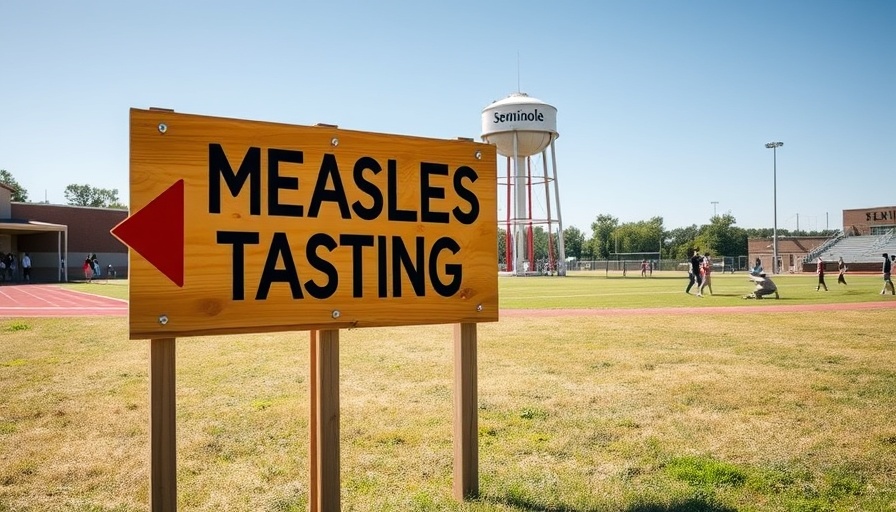
A Grim Toll: Understanding the Recent Measles Outbreak in Texas
In early 2025, Texas faced a serious public health crisis as measles infected more than 700 individuals, tragically claiming the lives of two unvaccinated children. This outbreak has highlighted the dire implications of declining vaccination rates, particularly as the disease was previously considered eliminated in the United States.
The End of an Outbreak, Not the End of the Threat
Health officials have recently declared the end of this outbreak, as more than 42 days have passed without new reported cases, but the warning is clear: the risk of measles remains a pressing concern. With the United States recording the highest number of measles infections in over three decades, communities must remain vigilant and proactive in addressing vaccination rates.
The Backstory: How the Outbreak Began
The outbreak's genesis can be traced back to undervaccinated Mennonite communities in Gaines County, Texas, and it soon linked with cases in neighboring New Mexico and Kansas. This interconnection illustrates how infectious diseases can easily spread across borders, especially in areas with low vaccination coverage.
The Consequences of Vaccine Hesitancy
As vaccines have become increasingly controversial, particularly in the wake of the COVID-19 pandemic, the MMR (measles, mumps, and rubella) vaccination rates have declined. Data shows that the majority of those who contracted measles this year were either unvaccinated or had an unknown vaccination status. Vaccination not only protects the individual but also helps safeguard the entire community through herd immunity.
Lessons Learned: Why Vaccination is Critical
These recent outbreaks serve as a stark reminder of the importance of maintaining high immunization rates. Vaccines are a cornerstone of public health, preventing serious diseases that can lead to severe complications and deaths. Communities from Myrtle Beach to Pawleys Island should engage in discussions regarding the importance of vaccines to protect their families and neighbors.
Community Engagement is Key
Engaging local communities in discussions and education about vaccinations can foster an environment where families feel empowered to make informed health choices. In areas such as North Myrtle Beach and Surfside Beach, local clinics and health education initiatives can provide accessible information about the benefits of immunization and address concerns about vaccines.
Don’t Wait: Take Action Now
The end of the measles outbreak does not mean it is safe to ignore immunization practices. Local health departments must continue to promote vaccinations and dispel myths about their safety. As residents of South Carolina's Grand Strand, it's crucial to understand that protecting your family’s health is a communal responsibility.
If you've not yet ensured your family is up to date on vaccinations, reach out to your local healthcare provider or clinic to schedule an appointment. Inact timely health measures now to avoid future outbreaks and safeguard our communities.
 Add Row
Add Row  Add
Add 





Write A Comment